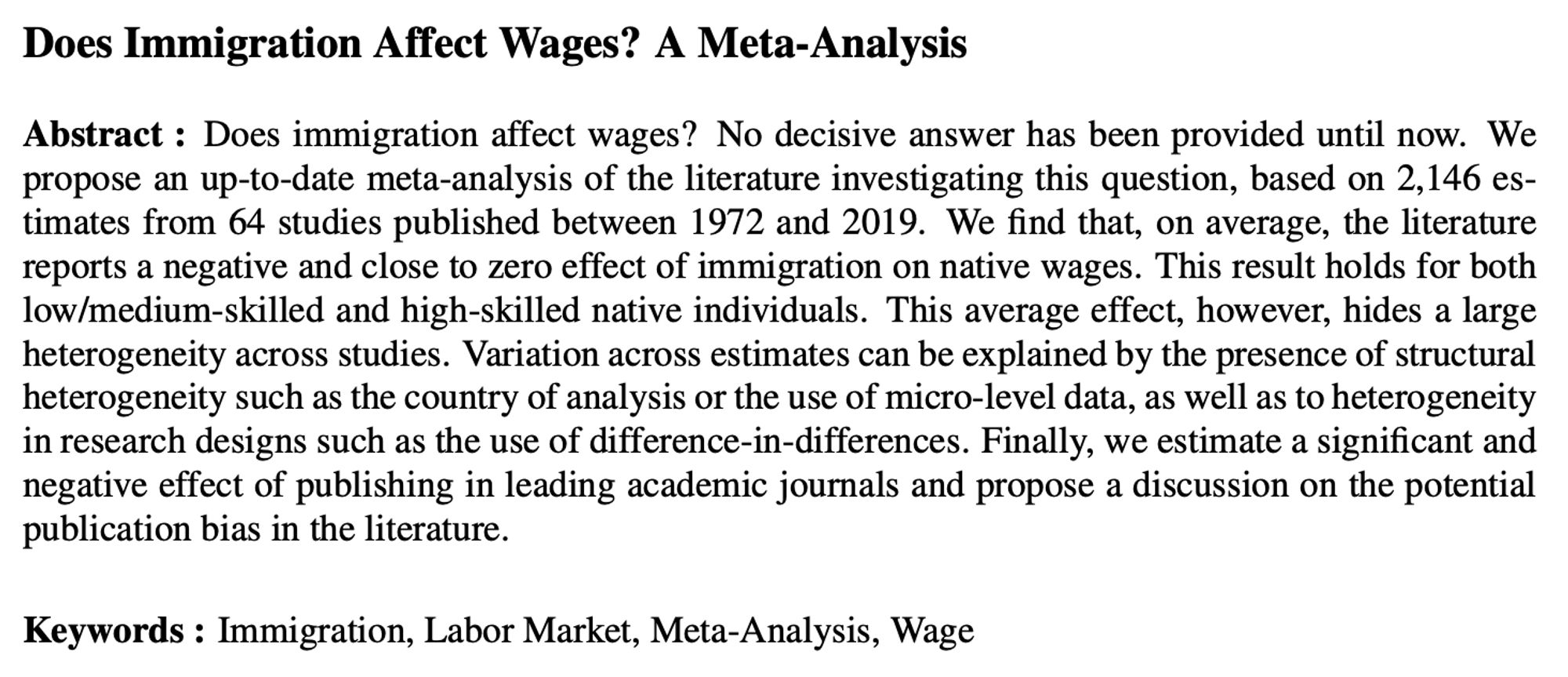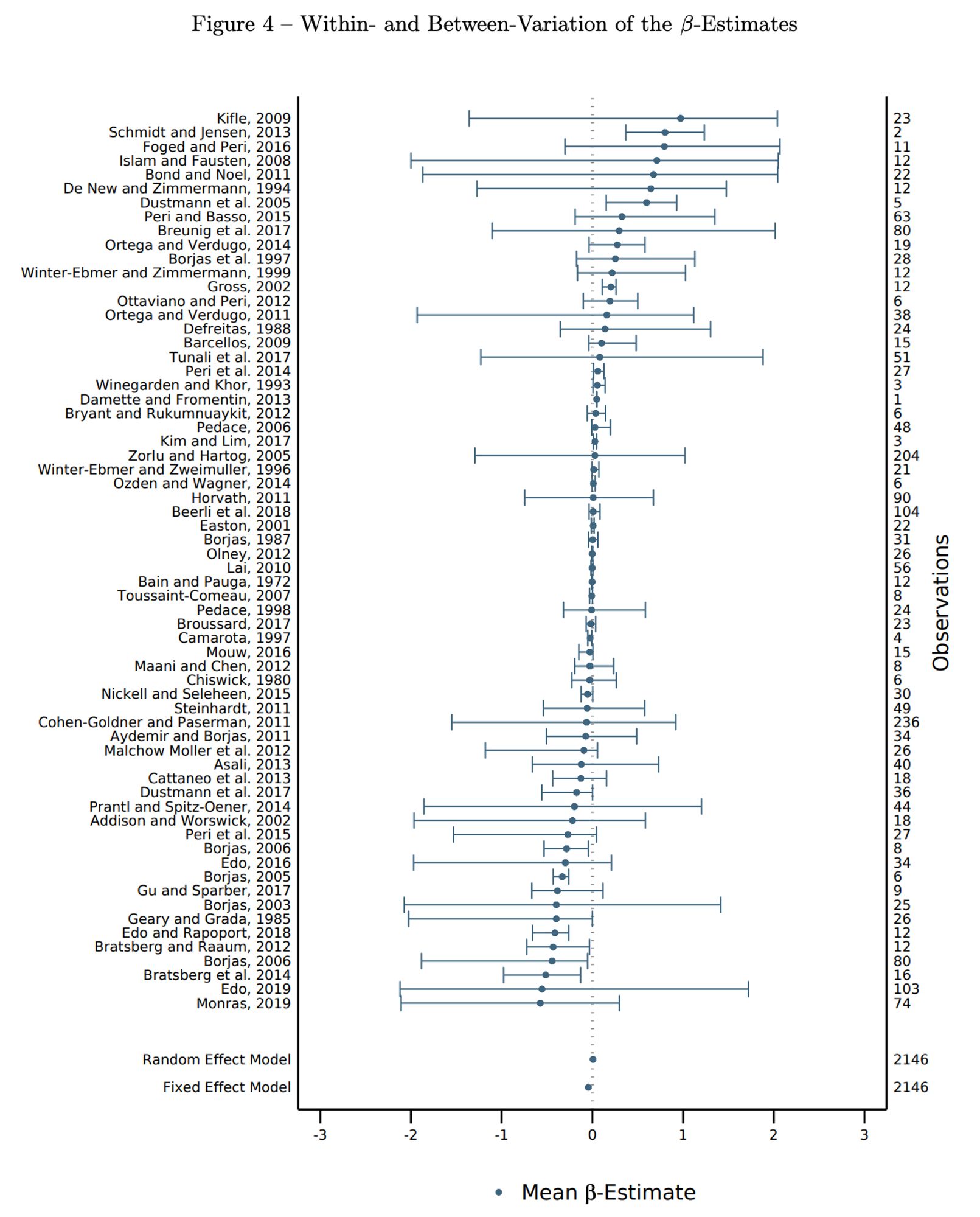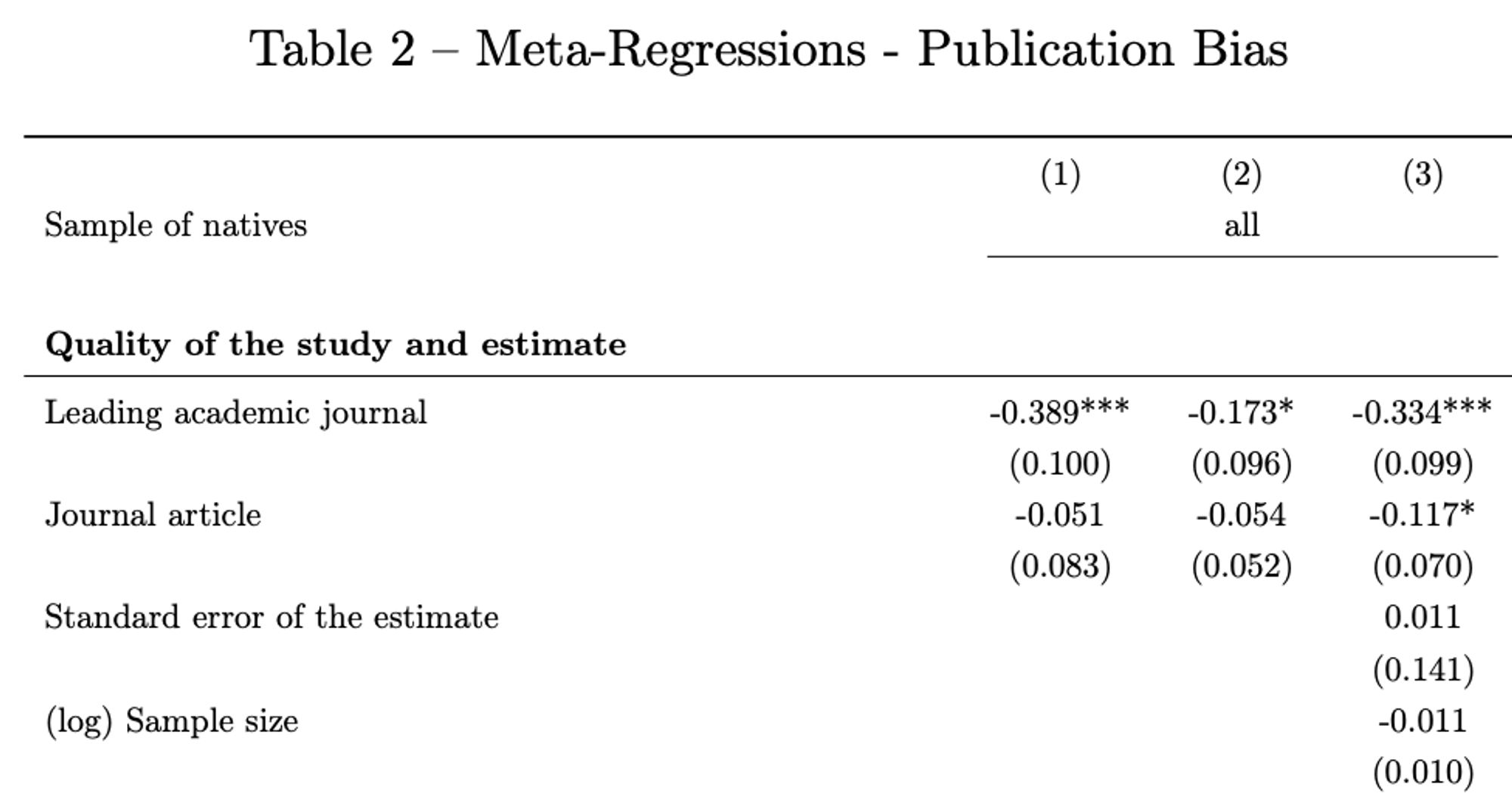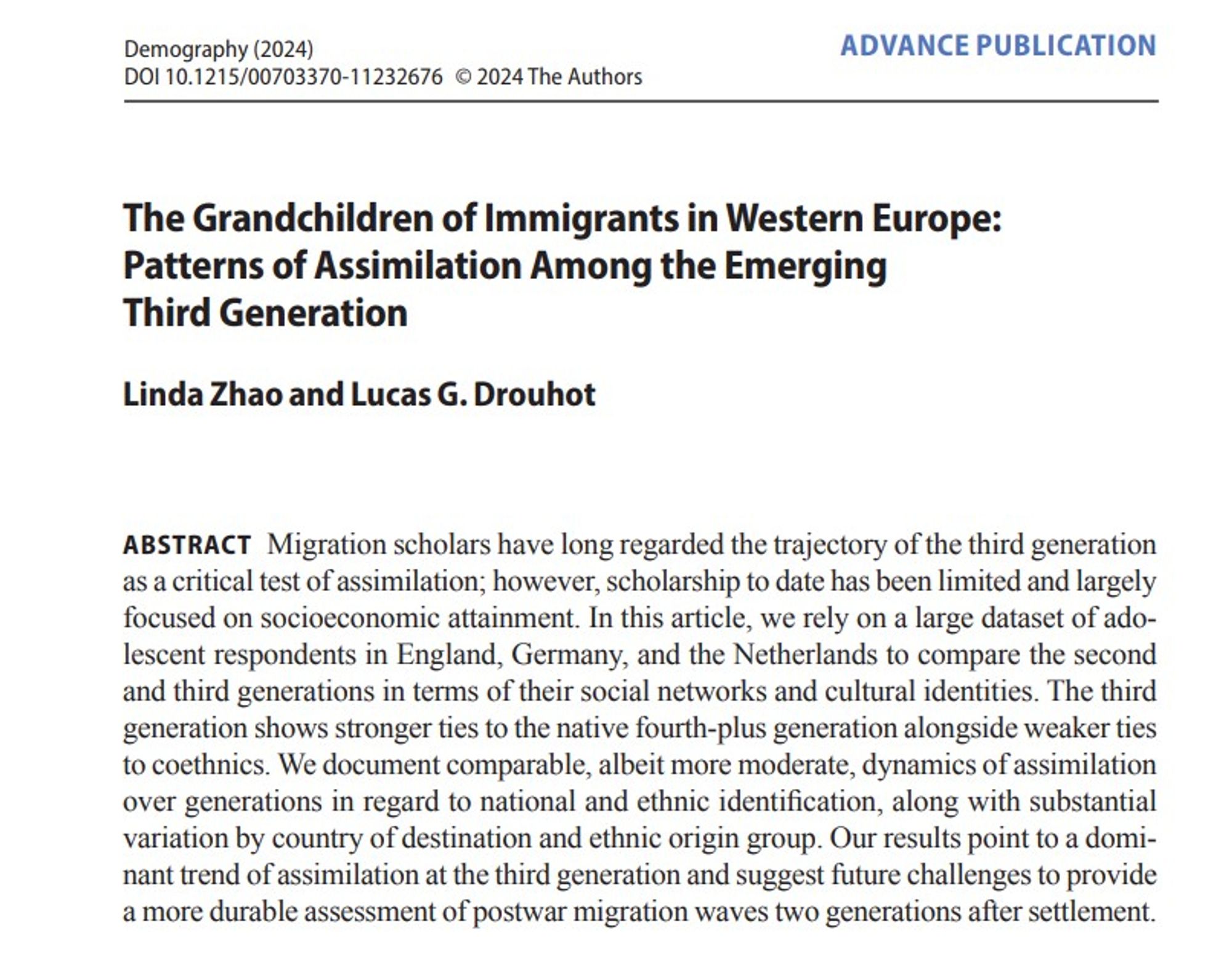
An elephant in the classroom? Teachers assign -6% Z-GPA & -5% acad. track advice to low-SES pupils than equally skilled, well-off peers. IV design shows 40% teacher bias overestimation by ability measurement error: @florenceups.bsky.social@marespadafor.bsky.socialtinyurl.com/unifi-disia
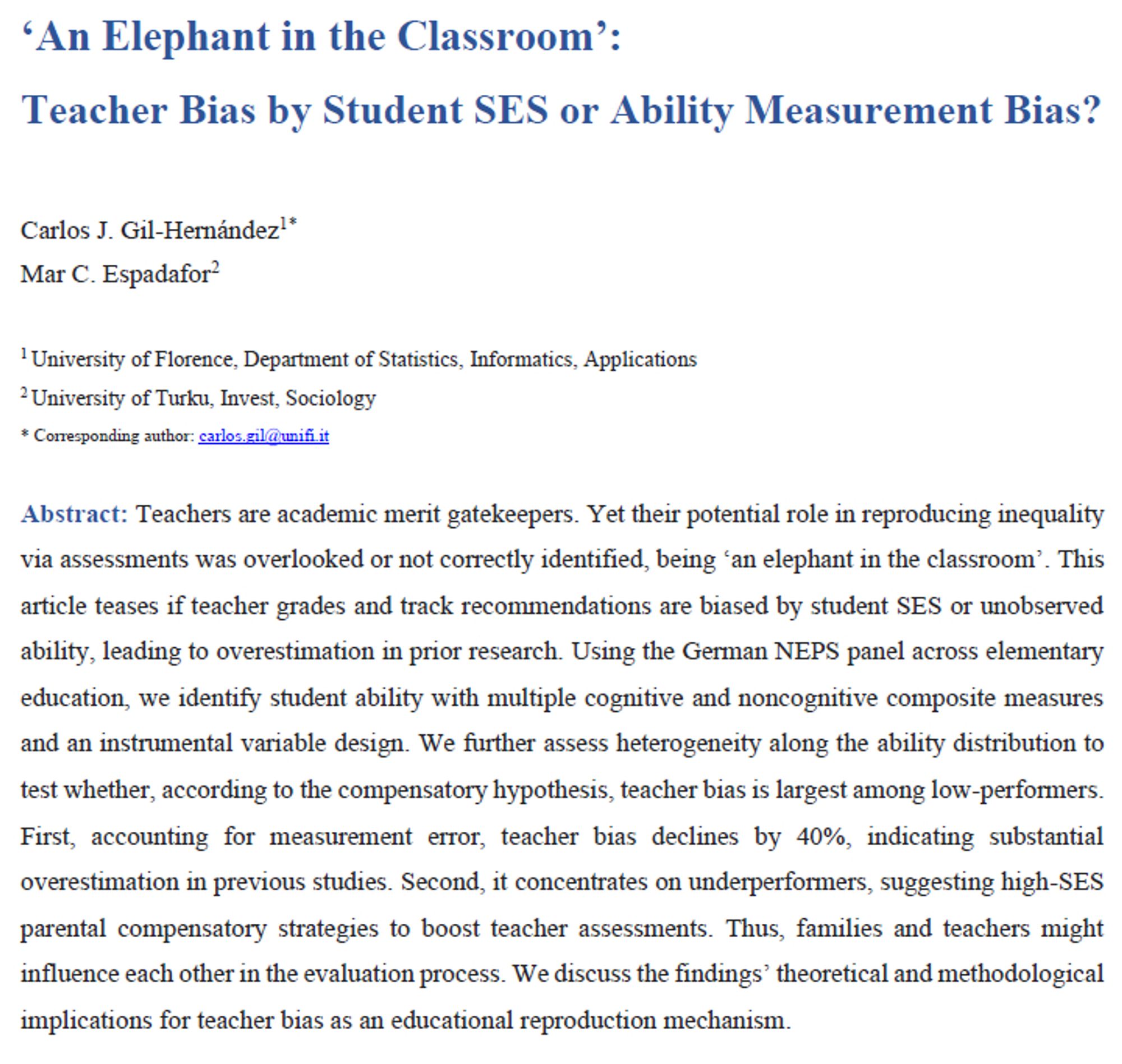
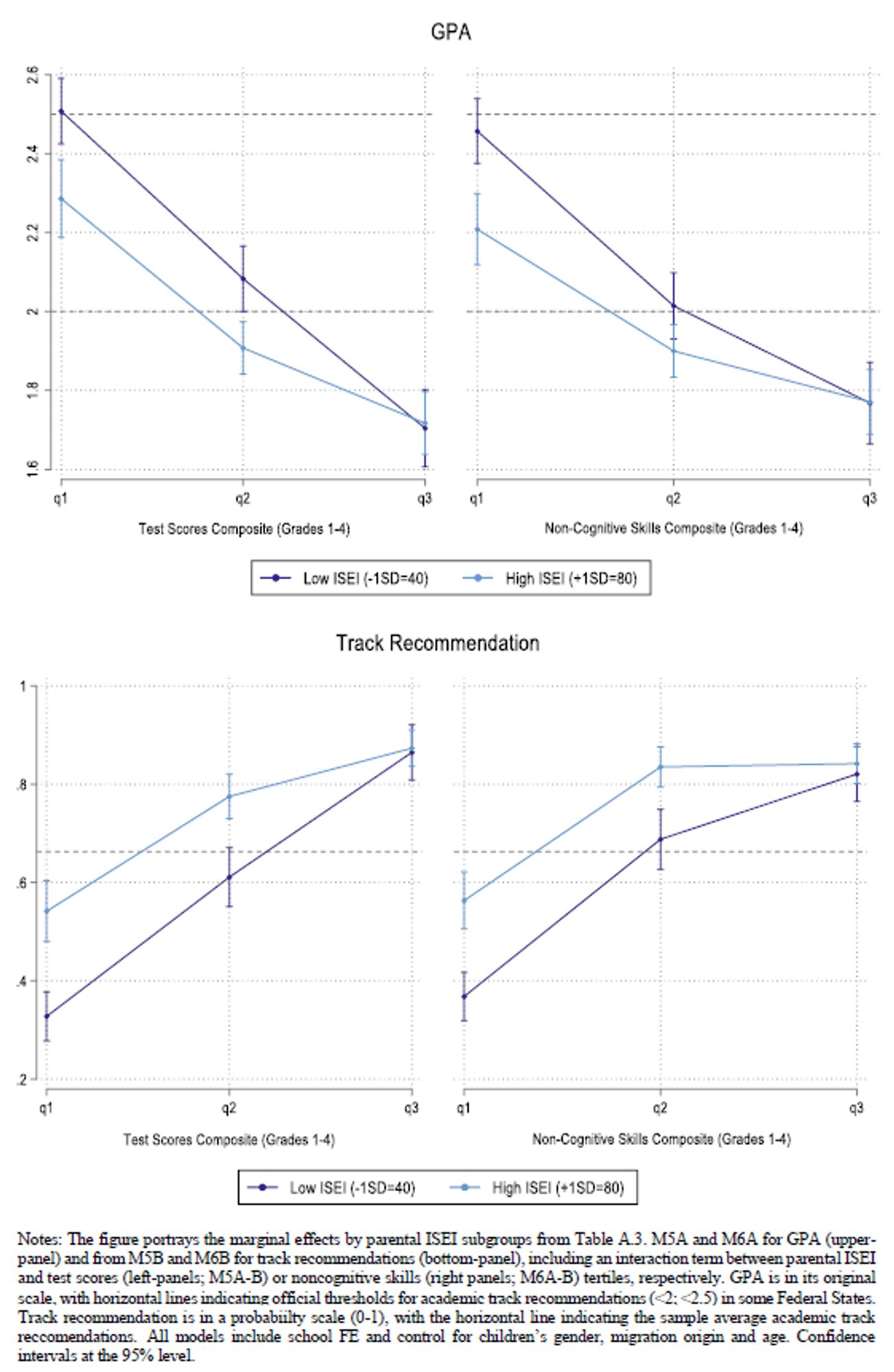
🆕 3-year Postdoc in Quantitative Sociology & Population!! - Topics: Social Stratification, Adolescent Wellbeing, Digitalisation, Life Course. - Place: Centre for Demographic Studies & Department of Sociology at UAB, Barcelona. -Deadline: June 17th. Share & apply!! 😃👇 Link: ced.cat/recursos/DIG...
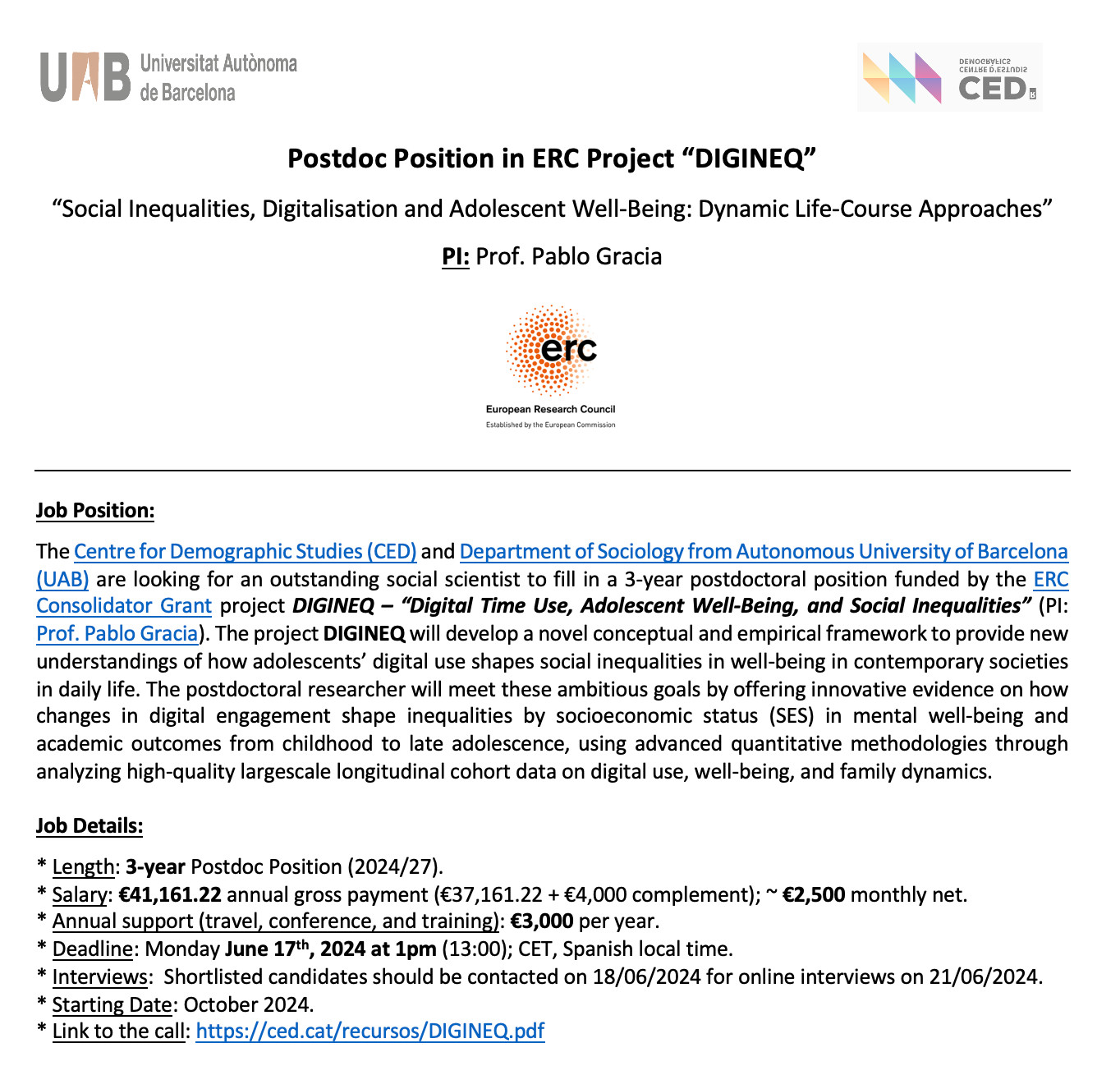
Is there an Immigrant Health Paradox & unhealthy migrant assimilation in Germany? Do findings hold in longitudinal data analyses with multiple health outcomes? New article on SocSci&Med with Carla Grindel & @claudiabrunori.bsky.socialdoi.org/10.1016/j.so...
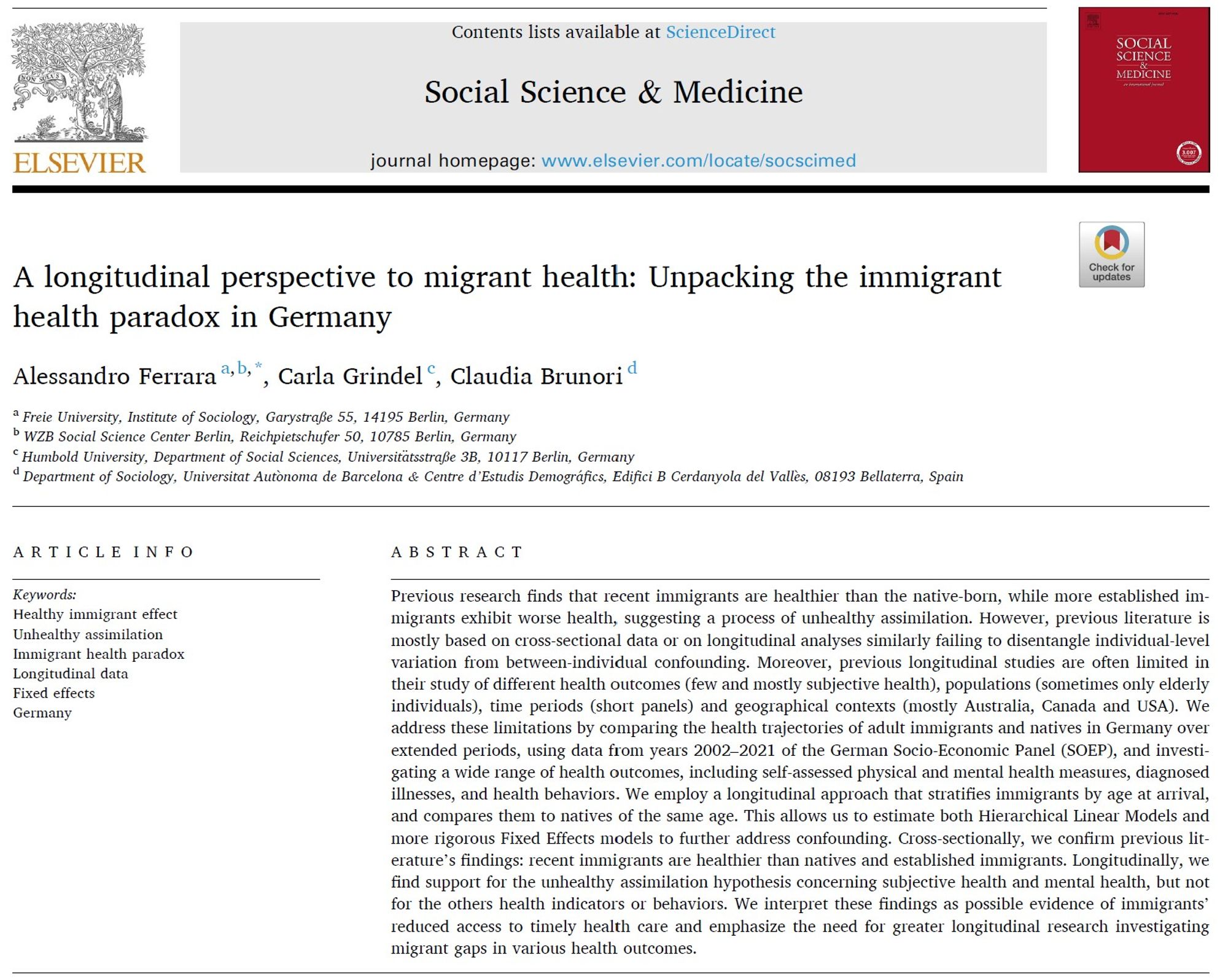
New paper published in Nature Mental Health! nature.com/articles/s44... Is educational attainment causally associated with mental health? We compare EA and psychiatric diagnoses of 1.7M Dutch siblings, and we check if Mendelian randomization analyses tell us the same story. Spoiler: not always! 😱
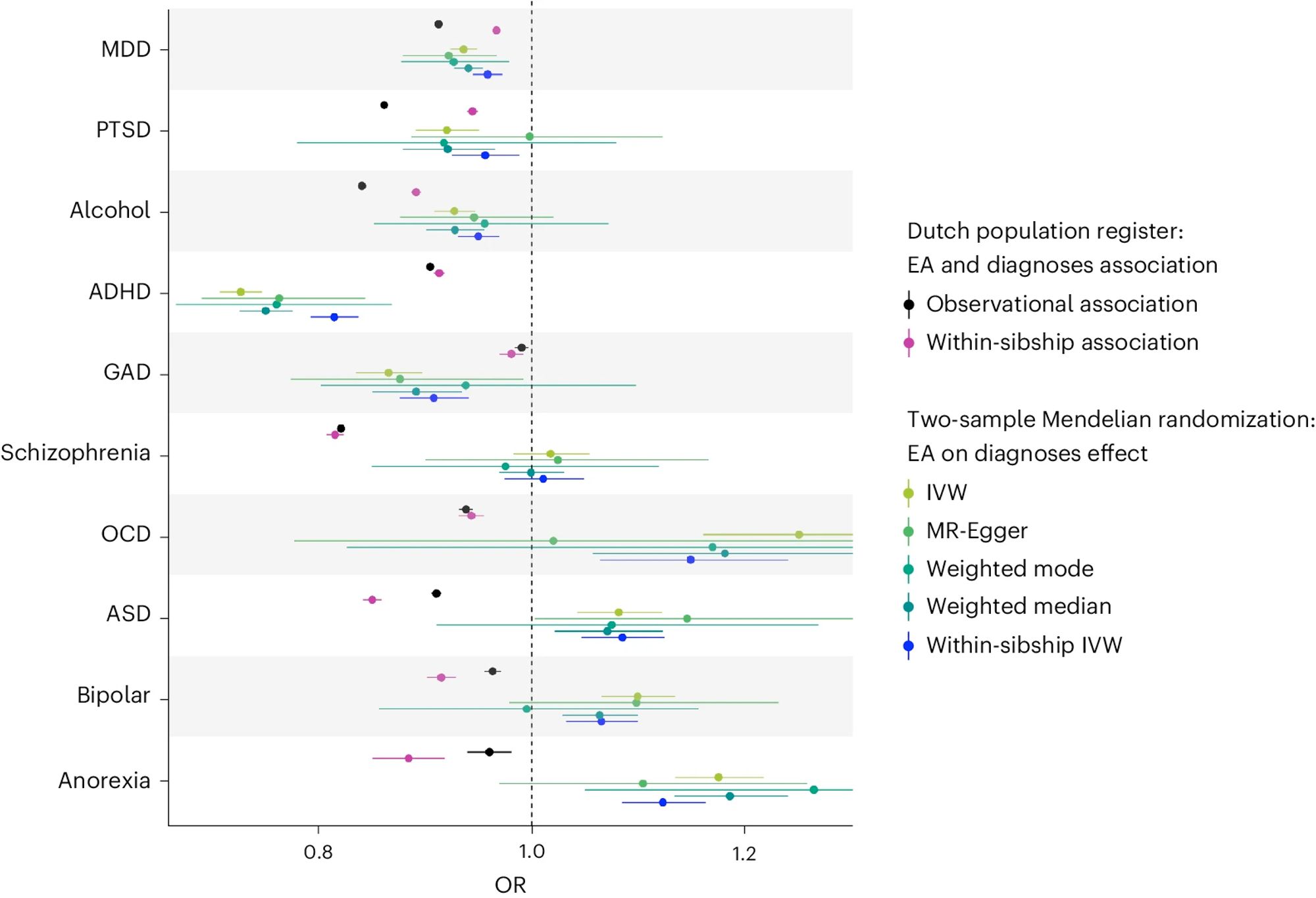
When can immigrant educational selectivity explain second-generation attainment? Renee Luthra and I outline some conditions and analyze a case where they are not met (the UK). Check out our new paper on Social Science Research: doi.org/10.1016/j.ss...
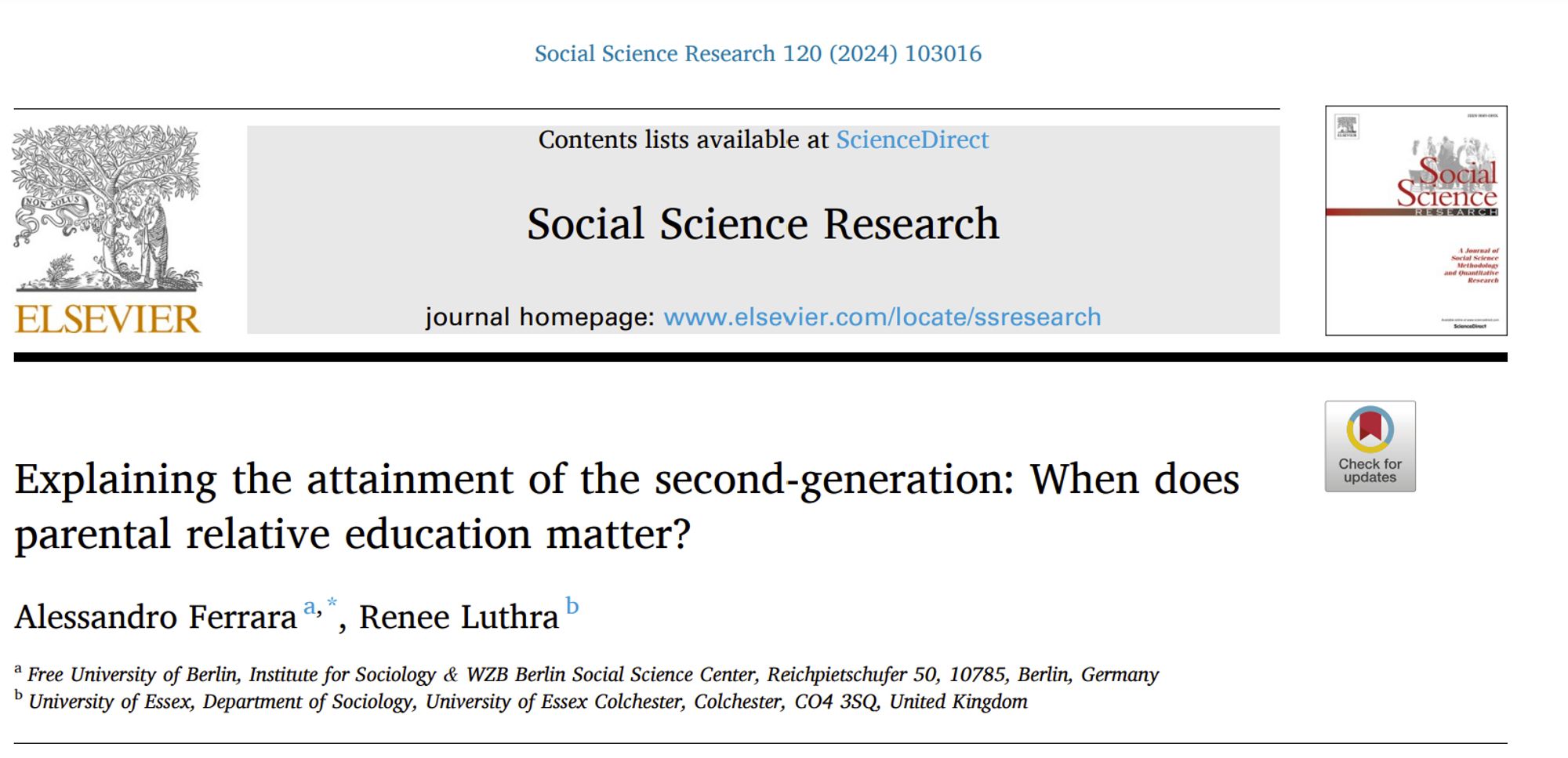
New paper with Linda Zhao now out at @Demography. We show general patterns of assimilation in terms of networks and identities at the 3rd generation in England, Germany and the Netherlands, with substantial heterogeneity by ethnic origins. 👇
New in Health & Place 🔓: www.sciencedirect.com/science/arti... Fun collaboration with Dimitrios Lampropoulos in which we confidently assumed one thing about health inequalities and then found and had to explain the exact opposite, using 🇨🇭 data
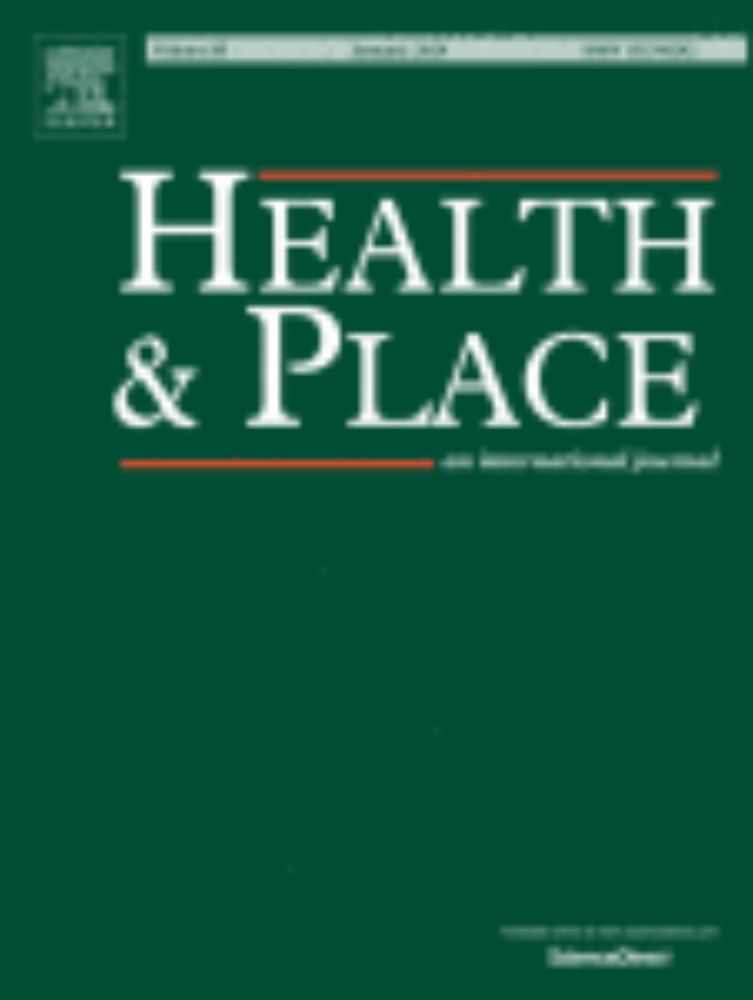
Low socioeconomic status (measured both objectively and subjectively) is systematically associated with worse health. Amid renewed interest in context…
Class death ⚰️? Most economists dismiss class, while sociologists overlook wealth in class analysis. Still, big occupational classes fairly capture high/rising wealth inequality trends in Europe. Yet, class measures need sharpening beyond labour market attachment 👇 t.co/IDJvLawa8I
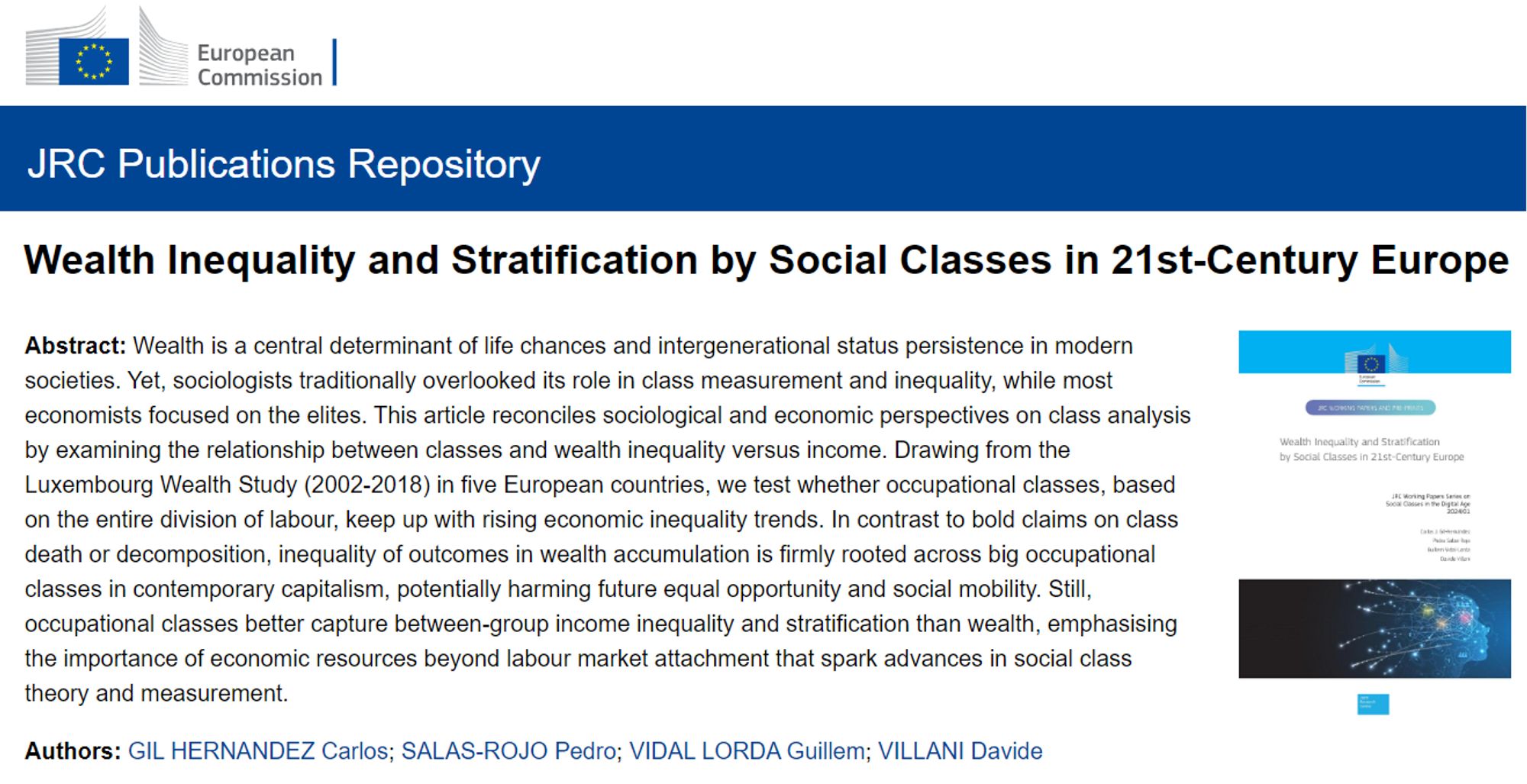
Does immigrant educational selectivity explain their children’s better health at birth in Spain? Yes: but only for low birth weight and certain origin groups. Check out our new Working Paper (with @marcocozzani.bsky.socialosf.io/preprints/so...
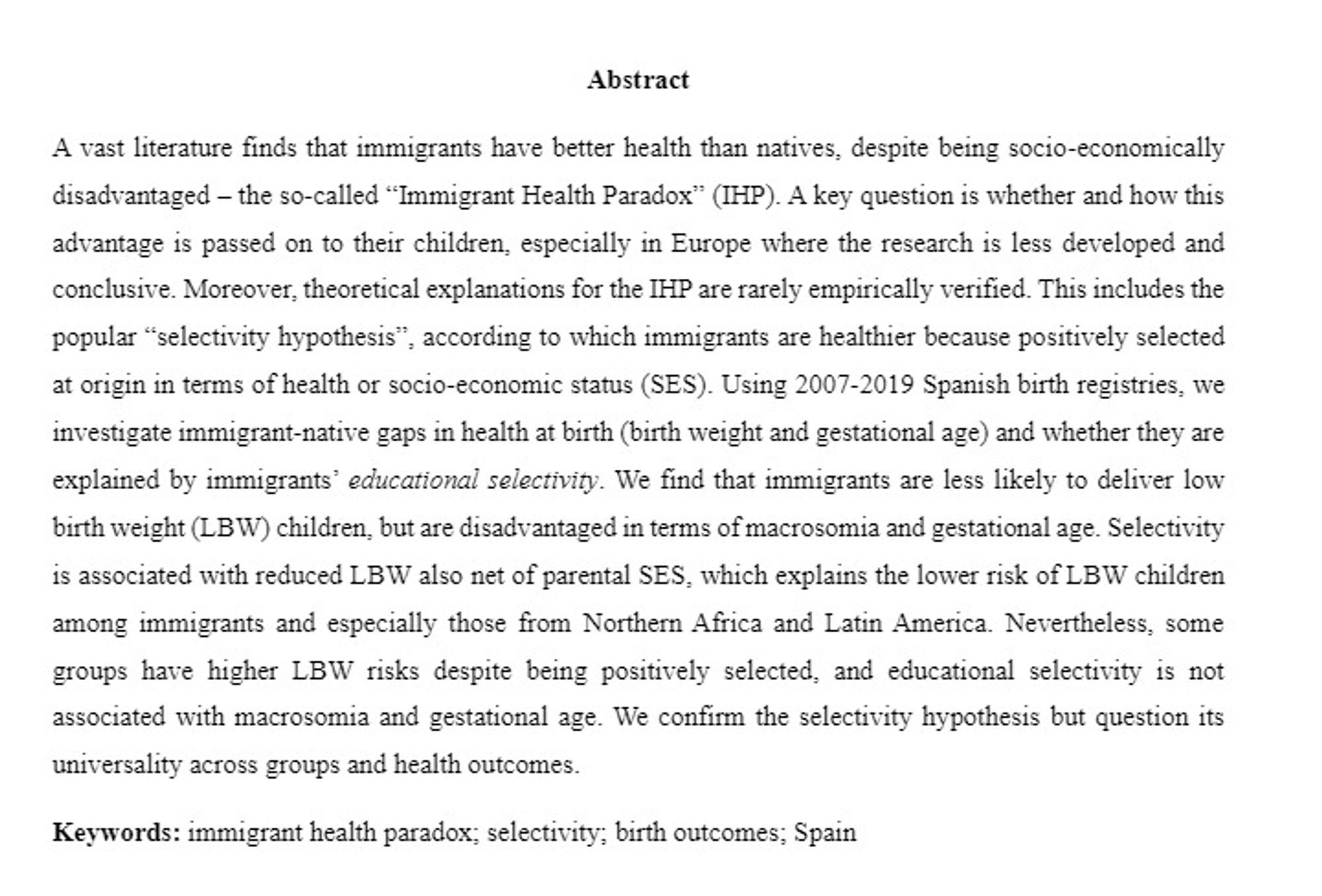
Today I begin a 🧵 on new, striking immigration research. @leamarchal.bsky.socialleamarchal.fr/wp-content/u...
